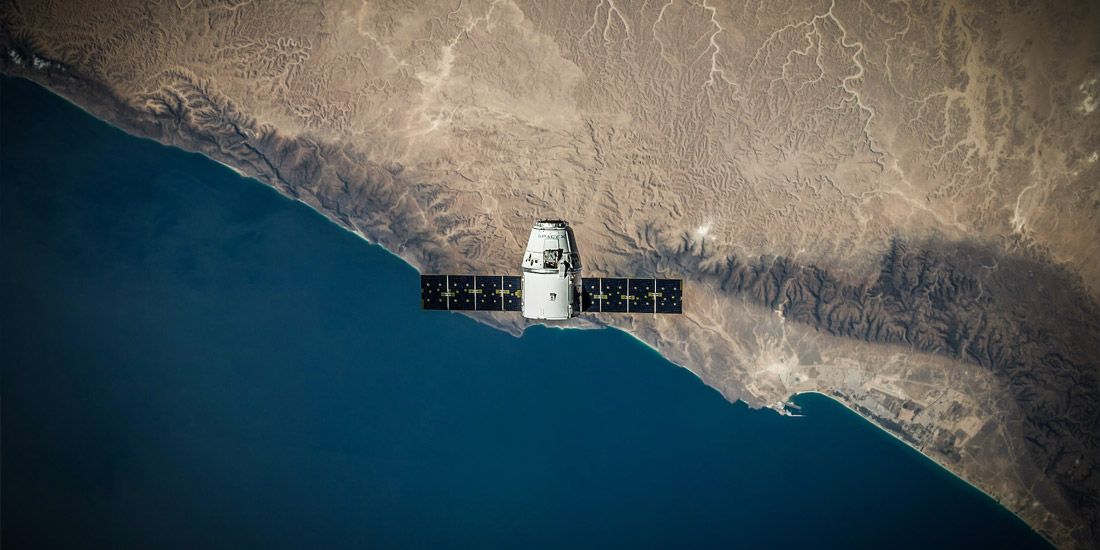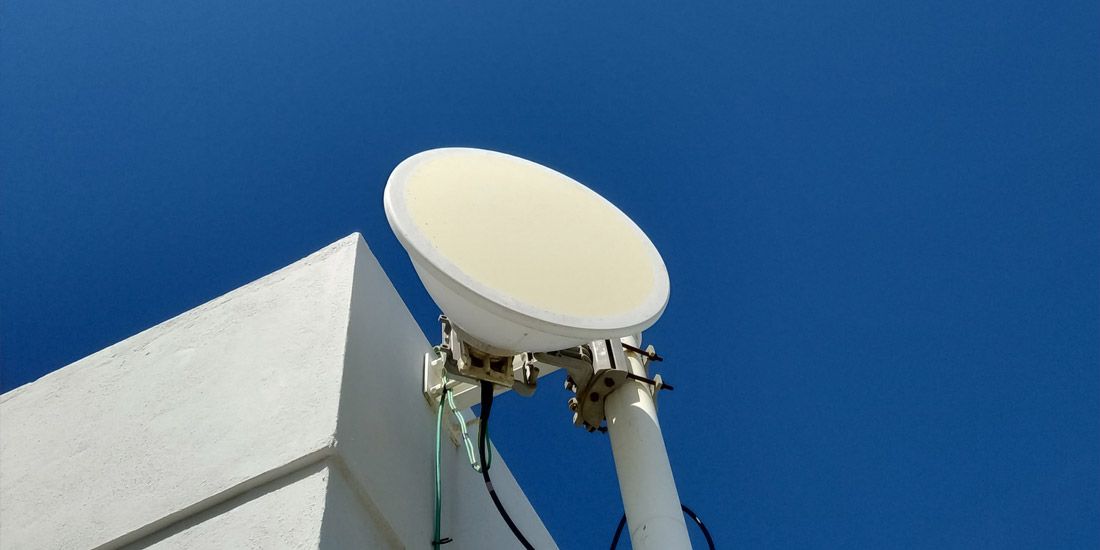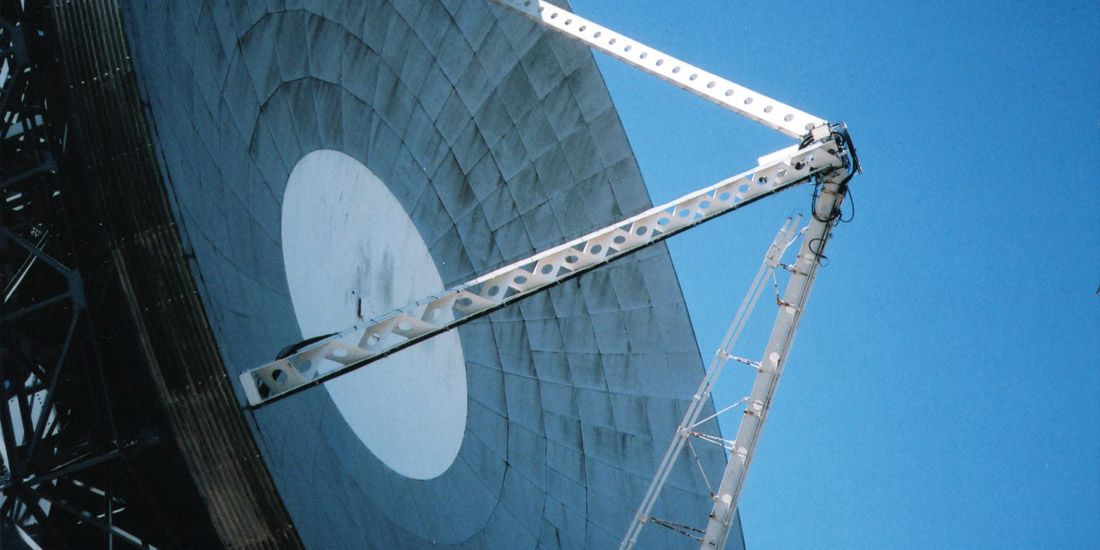Fibre optic vs satellite: What’s the difference?
24th November, 2022 | Home / Blog / Broadband speed / Fibre optic vs satellite: What’s the difference?Reading time: 8 minutes

Want to know what’s the difference between a fibre and a satellite internet connection? Wondering which is better and which gives you faster internet access?
We’re here to break down the jargon and explain the differences between the two types of broadband, so we can help you decide which is the better option for you.
In our guide, we’ll explore:
- What are satellite and fibre?
- How does the technology of a satellite dish work?
- Does fibre have lower latency than satellite communications?
- What are upload and download speeds like on satellite technology?
- How does satellite VSAT compare to fibre optic?
- Are fibre optics better than satellite?
- Which is faster satellite or fibre?
- Does satellite internet have more availability than fibre?
- How much does satellite internet cost per month?
- Is there an installation cost for satellite?
- Can I get fibre with Airband?
What are satellite and fibre internet connections?
A satellite internet connection is a type of broadband that works by using a satellite dish, often located on the roof of your house. It uses a coaxial cable (much like the one used for satellite TV) to transfer data from the dish to your router.
The satellite dish communicates with satellites far away in the earth’s atmosphere in order to send and receive data and connect you to the internet. Nifty, huh?
A fibre internet connection, however, couldn’t be more different from satellite. Fibre-to-the-premises broadband connects you to the internet by transmitting light signals at high speeds through fibre optic cables, which run from your property to a local internet exchange. It uses next-generation technology, but the speeds speak for themselves!
How does the technology of a satellite dish work?

Satellite technology works by transmitting data wirelessly. Think about how your radio connects to a signal using radio waves, however satellite signals must travel much further.
A signal will be broadcast from one location in the world, towards a satellite (often many satellites at once), which will then reflect that signal back down to earth.
The dish on your roof acts like a bowl and catches the data, funnelling it towards the receiver (known as the feed horn). It then goes through your coaxial cable and into your router, and then finally, it’s sent to your device through your WiFi. This is how your satellite dish downloads data.
However, the internet requires two-way data communications – that’s upload and download. Uploading works in the opposite way, the feed horn will broadcast a signal towards the dish, and the dish will reflect the signal in a concentrated beam back towards the satellite.
Satellite internet has long been associated with delay, also known as latency, due to how far the signals must travel between your home, the satellite, and back again. This means that for most, satellite internet is not the best option available unless you are very remote.
Does fibre have lower latency than satellite communications?

Yes, fibre broadband connections have much lower latency than satellite communications.
Latency, in the context of broadband, refers to the time it takes to transmit data. It’s not the same as broadband speeds though; it’s more like how fast your connection can react to changes. Latency affects online gaming mostly, where your internet needs to process a lot of dynamic activity at once. It’s the main culprit for causing that in-game lag we all dread!
Satellite internet connections suffer from much worse latency and more interference, making it much slower to react than fibre. This is all thanks to satellite signals having to travel a great distance to transmit data, while fibre connections are a direct line from your router to the exchange. That’s what makes fibre great for real-time communications and online gaming, even in rural areas.
What are upload and download speeds like on satellite technology?
With most satellite broadband providers, the best download speed you can expect is around 40Mbps (unless you go with more modern types of satellite internet like Starlink which you can get up to 300Mbps). The best upload speed is 3Mbps for most satellite providers, and up to 40Mbps with Starlink.
This is no match for the heavyweight of the broadband world, our fast and furious fibre. Fibre-to-the-premises (FTTP) broadband technology is capable of download speeds up to 1Gbps (1000Mbps) and upload speeds up to 1Gbps (symmetrical) – but you’ll need to see what providers offer in your area, as it’s not currently available everywhere just yet.
Fear not, you might be in range to get an ultrafast fibre connection with Airband with whopping download speeds up to 900Mbps and upload speeds up to 200Mbps. Have a look at our broadband packages to find out more.
How does satellite VSAT compare to fibre optic?
What does VSAT mean? It stands for very-small-aperture-terminal. In other words, it’s a satellite dish that can connect you to the internet.
The big difference between satellite VSAT and fibre broadband is how it works. Satellite internet doesn’t use cables or phone lines. It uses a satellite dish. Fibre works using fibre optic cables.
Are fibre optics better than satellite?

That’s an easy YES from us. Fibre broadband is far better than satellite internet because it offers much more reliability and it transmits data much faster. Win-win!
Unlike fibre, a satellite dish needs good weather to function well too. So, any storms, extreme temperatures or wet weather can cause disruption in the satellite’s communications,.
Which is faster satellite or optical fibre?
Fibre is faster than satellite internet because it’s set up using fibre optic cables. The connection can send data in pulses through the cable almost at the speed of light.
Are there people in your household who do lots of online gaming, or movie streaming? Fibre broadband is a much faster type of internet connection so that you can keep up with the speeds of everyday life.
On our Fibre 900 package, for example, you can get up to 900Mbps download speed. That’s a lot faster than the speeds that satellite communication will get.
Are you looking for a better broadband connection? Use our broadband coverage checker. Alternatively, see if you can find your area from our ever-growing coverage map.
Does satellite internet have more availability than fibre?

Satellite internet is more widely available in remote areas than fibre. This is because satellite internet connections are wireless, meaning that they don’t require any existing fixed infrastructure to get you connected to the internet.
Meanwhile, fibre broadband is a new type of broadband technology that is still being rolled out.
FTTP connections require a full fibre connection from the property, to the exchange to be built. In more remote and rural areas, homes are further apart and often in more challenging terrain, so it can be difficult to get a fibre connection to your home.
However, fibre broadband is the future because it is:
- Secure
- Fast
- Not impacted by the weather
Find out some of the huge advantages of fibre optic cable.
How much does satellite internet cost per month?
Satellite internet service packages can be very expensive and cost up to £100/month, according to Money Supermarket.
It depends on which satellite communication you choose, but you can also experience restrictions on download limits.
Is there an installation cost for satellite?
Some satellite internet providers also charge to set up the satellite dish, normally up to £200.
At Airband, we deliver fibre broadband in rural areas and offer free installation on all of our fibre broadband packages… We offer broadband with no upfront costs.
So, if you live in a more remote location in the UK, we could be bringing great broadband right to your home. See if you can get rural broadband in your location.
Can I get fibre with Airband?

We’d love to connect with you and help deliver some of the fastest speeds in the country to your home. And it won’t cost you the earth to connect with us either!
Fibre broadband packages with Airband range from £25 to £55/month, with guaranteed fixed prices, and fabulous speeds to boot. Find out more about them here:
When you sign up for ultrafast broadband with us, you’ll get:
- up to 900Mbps download speed
- up to 200Mbps upload speed
- up to 2 WiFi 6 mesh routers included
Wondering if 900Mbps is a good download speed? It’s fantastic! Perfect for heavy streamers, downloaders, gamers or online workers, you’ll be able to connect an almost limitless amount of devices to the internet at once.
Find out how much broadband you need.
You might like:
- What is fibre broadband?
- Broadband or fibre: What’s the difference?
- What is the difference between superfast and ultrafast broadband?
Related Articles
Check availability:


